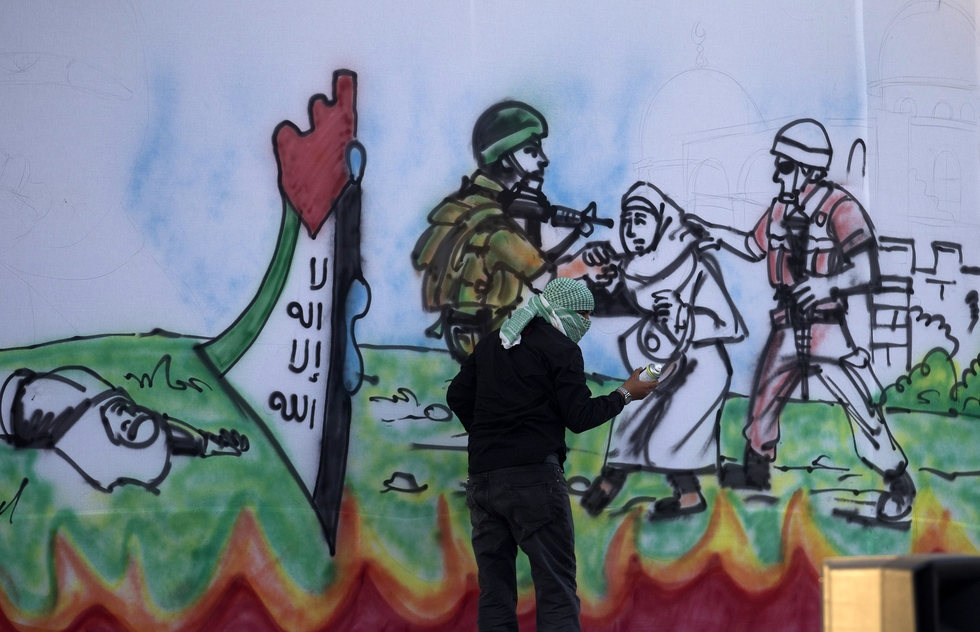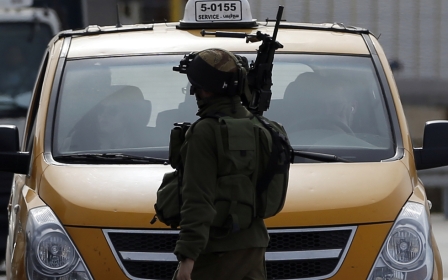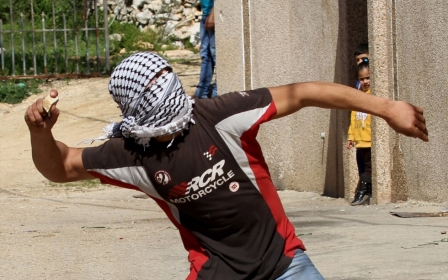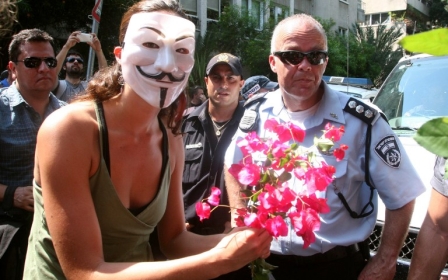Palestinians don't attack Israeli soldiers in pursuit of 'economic peace'

Following France's stuttering attempt to restart the peace process, US Secretary of State John Kerry met Palestinian Authority (PA) President Mahmoud Abbas in Amman. This could lead to a meeting between Israel and the PA possibly in July, bringing together Abbas and Israeli Prime Minister Benjamin Netanyahu. Abbas is not against the idea.
However, Israel's response was much more lukewarm. Deadly attacks by individual Palestinians, mostly on Israeli occupation forces, continue while the overall situation remains tense and could suddenly explode. Realising this, Israel decided to pacify Palestinians through the release of some tax revenues it has been withholding, some easing of travel restrictions, the reinstatement of a few VIP passes and by issuing some more work permits for Palestinians to enter Israel. This was communicated to the Palestinians at a meeting between the Israeli and PA finance ministers.
However, the real driving force behind these measures is an attempt to shore up the Palestinian Authority which a number of Israeli politicians fear is near collapse.
Israeli Minister of Immigrant Absorption and Minister of Jerusalem Affairs Ze'ev Elkin spelt this out in a speech he recently gave at Bar-Ilan University: "The question is not if the PA collapses but when it is going to collapse," Elkin said. "It can happen in a month or two or a year or two tops." He was concerned about the Israeli government’s lack of concern about this, saying, "I'm not sure that the government has passed the diagnostic stage and realised the dramatic change we are facing.” He was further concerned that Abbas' "control on the ground is diminishing".
A major fear the Israelis have about the collapse of the PA is the end of the security cooperation Israel has enjoyed. This has reduced both its financial and physical (personnel) burden substantially. Abbas himself is committed to this cooperation calling it “sacred”. However, both the Israelis and the PA know full well that the current "rising" has been characterised by attacks that are not coordinated in any way and that are not linked to any particular faction. They are acts by individuals who for reasons only known to them decide to carry out these attacks.
The recent "sweeteners" offered by Israel are unlikely to bring an end to what Palestinians claim to be an intifada which has lasted five months and has seen over 180 mostly young people lose their lives to Israeli fire. Neither these nor any talk of "economic peace" come anywhere near convincing the Palestinians that attaining their legitimate rights is around the corner.
Israel again either fails to grasp the reasons behind this intifada or knows full well what they are but chooses to deal with it in an illogical and brutal way, thinking this will end it. Take Education Minister Naftali Bennett’s claim at a recent Israeli cabinet meeting that Palestinians are not preventing their children from committing stabbing attacks because “they know parents of slain assailants receive a grant and a stipend from the Palestinian Authority”.
This claim that Palestinian parents prefer their sons and daughters executed at checkpoints in order for them to receive a monthly salary is preposterous. However, this is a man who is fine with killing Palestinians. He recently called for the murder of "anti-occupation fighters" adding that "We have to bury Palestinian anti-occupation fighters in secret cemeteries and knock down all the homes in their native villages".
Neither denial of Palestinian rights nor brutal violence has delivered security to Israelis but neither have economic sweeteners. If Israel does not understand the motives of attackers then it should carefully read Muhannad Halabi’s posts on his Facebook account before he attacked four Israelis on 3 October 2015 and was executed on the spot. He asked "How long will this humiliation and shame last, for how long? Do we stay silent? Do we stay humiliated? Is there room for peaceful methods? In law, yes there is room in the law. You have the full right to defend yourself by any means against someone wielding a weapon in your face. The resistance is within the limits of the law and is legitimate."
As I see it he was saying “the third intifada has started. What is happening to Al Aqsa is what is happening to all our sacred places and what is happening to the women of Al Aqsa is what is happening to our mothers and sisters. I do not think that a people can accept humiliation. The people will rise and they are rising."
It is that continuing, daily sense of humiliation by Israel, and its leaders’ lack of acceptance that the Palestinians have any rights that needs to be fundamentally addressed. It is the continuing occupation, imprisonment, home demolitions, land grab, refusal to allow the refugees to return, the expansion of settlements, and settler violence amongst other violations of their rights that drives some Palestinians to violence.
In addition, it is the lack of any real success that peaceful resistance initiatives have delivered. The weekly protests against the separation wall in Bil’in and other locations are met with brutal force and have not succeeded in reversing land confiscations for the wall or for expansion of the illegal settlements.
Even on the international stage moves such as those taken in the US, France and the UK to "criminalise" the Boycott, Divestment and Sanctions (BDS) movement are seen as proof that even this peaceful tactic is closed to them and their supporters.
The Palestinians are not rising for economic gain or, ultimately, for an economic peace but for freedom and independence. When Palestinians set out to attack Israeli soldiers, knowing it will almost certainly result in death and the demolition of their family’s home, they do not do this to help secure a few more work permits for Palestinians or a martyr’s stipend for their family. They do it out of desperation and a belief, rightly or wrongly, that their collective acts will hurt Israel sufficiently that it will finally address their grievances.
The fact that Israel refuses to understand this and to continue to deny Palestinians their rights is a characteristic of its colonialist endeavour. However, for the international community to also fail to grasp this makes any attempt at restarting talks for economic peace simply futile. Former Quartet Middle East envoy Tony Blair tried this for the whole of his tenure and failed.
- Kamel Hawwash is a British/Palestinian engineering professor based at the University of Birmingham and a long-standing campaigner for justice, especially for the Palestinian people. He is Vice Chair of the Palestine Solidarity Campaign (PSC) and appears regularly in the media as commentator on Middle East issues. He runs a blog at www.kamelhawwash.com. He writes here in a personal capacity.
The views expressed in this article belong to the author and do not necessarily reflect the editorial policy of Middle East Eye.
Photo: A Palestinian man paints on a wall a scene depicting a Palestinian woman being arrested by Israeli security forces during an anti-Israel rally on 26 February, 2016, in the southern Gaza Strip town of Rafah (AFP).
Middle East Eye propose une couverture et une analyse indépendantes et incomparables du Moyen-Orient, de l’Afrique du Nord et d’autres régions du monde. Pour en savoir plus sur la reprise de ce contenu et les frais qui s’appliquent, veuillez remplir ce formulaire [en anglais]. Pour en savoir plus sur MEE, cliquez ici [en anglais].





